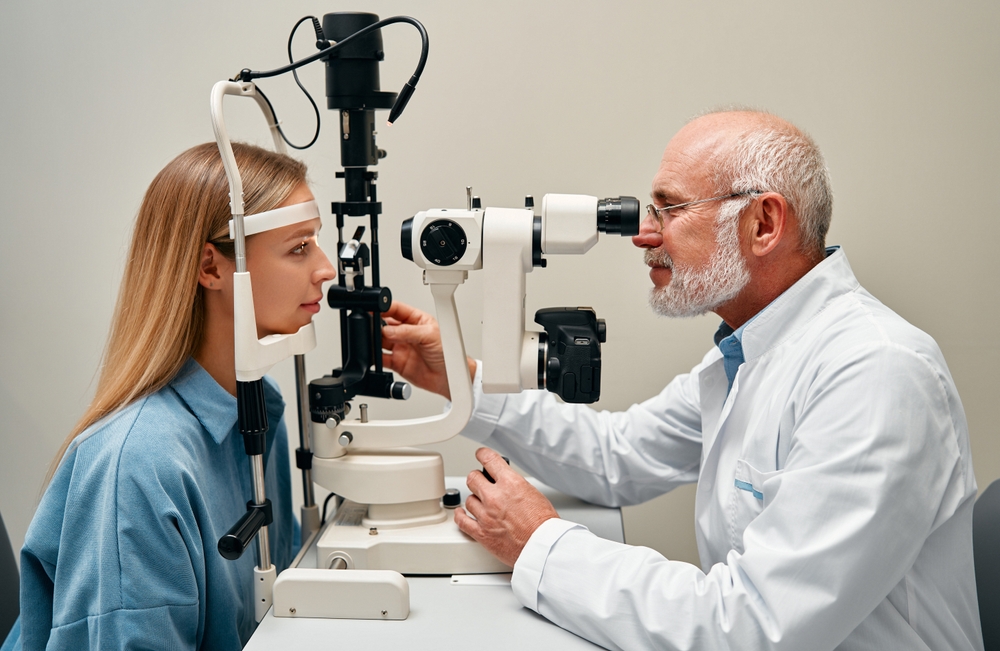

Taking care of your eyes is crucial for maintaining good vision and overall well-being. One important aspect of eye care is undergoing regular comprehensive eye exams. A comprehensive eye exam is a thorough evaluation of your eye health and visual acuity. It involves a series of tests and assessments to detect any potential eye conditions and determine the best course of action for your eye care needs.
What is a Comprehensive Eye Exam and Why is it Important?
A comprehensive eye exam is a comprehensive evaluation of your eye health and visual acuity. It is performed by an eye doctor and involves a series of tests and assessments to determine the overall health of your eyes. This examination is important because it can detect potential eye conditions and diseases at an early stage when they are most treatable. Additionally, a comprehensive eye exam can also help identify any underlying health issues that may affect your eyes, such as diabetes or high blood pressure.
What to Expect During a Comprehensive Eye Exam
When you arrive for your comprehensive eye exam, you will first be asked to provide your medical history and any information about your current eye health or concerns. This information will help the eye care professional understand your individual needs and tailor the examination accordingly.
The examination will typically begin with a visual acuity test, where you will be asked to read letters or numbers from a chart. This test will determine the clarity of your vision at various distances. Next, the eye care professional will assess your eye coordination and movement by asking you to follow a moving object with your eyes. They will also evaluate your depth perception and color vision.
Afterwards, the eye care professional will use various instruments to examine the structures of your eyes. They may use a slit lamp microscope to view the front and back of your eyes, checking for any abnormalities or signs of disease. They may also dilate your pupils using eye drops to get a better view of the inner structures of your eyes, including the retina and optic nerve.
Common Eye Conditions Detected During a Comprehensive Eye Exam
A comprehensive eye exam can detect a wide range of eye conditions and diseases. Some of the most common conditions that can be detected include:
- Refractive errors: These include nearsightedness, farsightedness, and astigmatism, which can be corrected with prescription glasses or contact lenses.
- Glaucoma: This is a group of eye diseases that can damage the optic nerve and lead to vision loss if left untreated. Early detection through a comprehensive eye exam is crucial for managing and preventing further damage.
- Cataracts: These are clouding of the lens in the eye, leading to blurry vision. A comprehensive eye exam can determine the presence and severity of cataracts, and the appropriate treatment options.
- Age-related macular degeneration (AMD): This is a progressive eye condition that affects the central vision. Early detection through a comprehensive eye exam is essential for managing and slowing down the progression of AMD.
- Diabetic retinopathy: This is a complication of diabetes that affects the blood vessels in the retina. Regular comprehensive eye exams are important for monitoring and managing this condition.
The Benefits of Early Detection and Intervention
Undergoing regular comprehensive eye exams and detecting eye conditions early has numerous benefits. Early detection allows for timely intervention and treatment, which can help prevent further vision loss or complications. For example, if glaucoma is detected early, it can be managed with medication or surgery to prevent vision loss. Similarly, early detection of cataracts can lead to timely surgical intervention, restoring clear vision.
Additionally, comprehensive eye exams can also detect underlying health conditions beyond the eyes. For instance, during an eye exam, signs of high blood pressure or diabetes can be detected, prompting further medical evaluation and intervention. By identifying these conditions early, appropriate treatment can be initiated, reducing the risk of complications and improving overall health outcomes.
Schedule Your Eye Exam with Volusia Eye Associates Today
A comprehensive eye exam is a vital component of maintaining good eye health and overall well-being. Early detection and intervention offer numerous benefits, including preventing further vision loss, managing eye conditions, and identifying underlying health issues.. Take proactive steps to schedule your next comprehensive eye exam and safeguard your precious eyesight.
Schedule your comprehensive eye exam today and prioritize your vision and eye health, visit Volusia Eye Associates at our office in New Smyrna Beach or Edgewater, Florida. Call (386) 427-4143 or (386) 230-0300 to book an appointment today.




